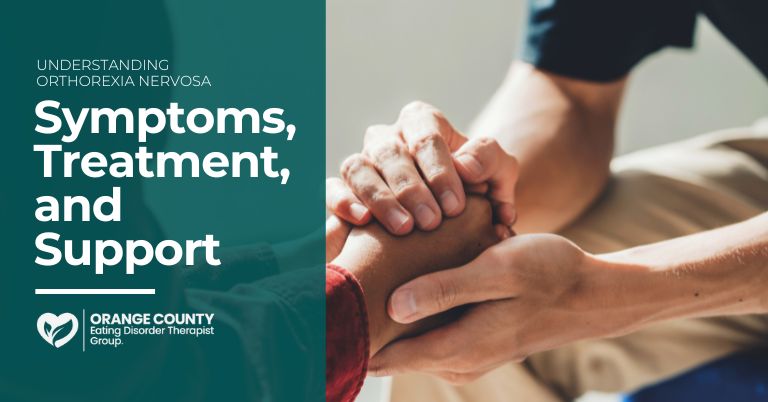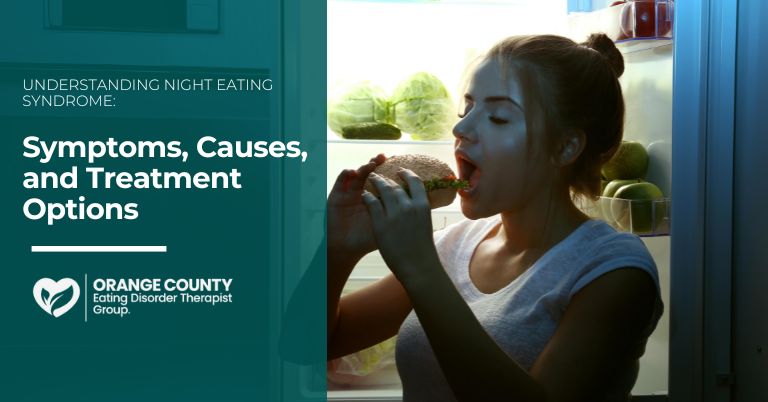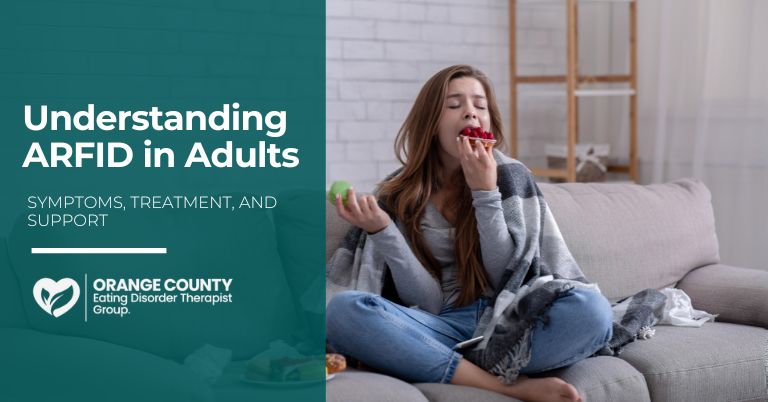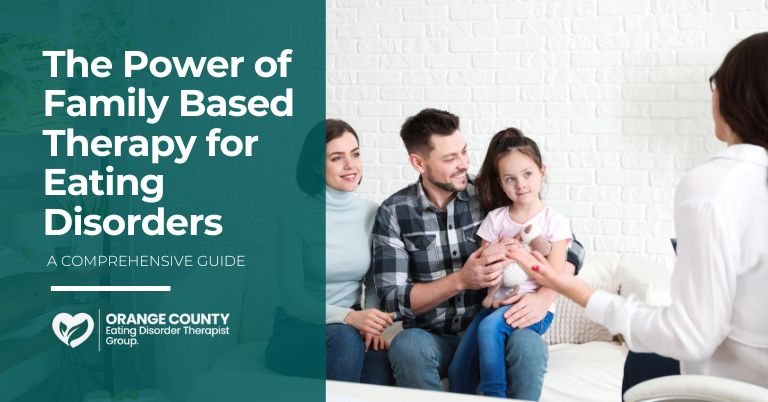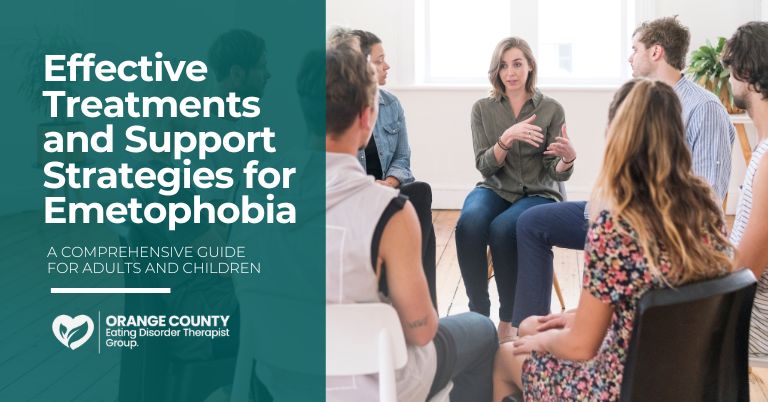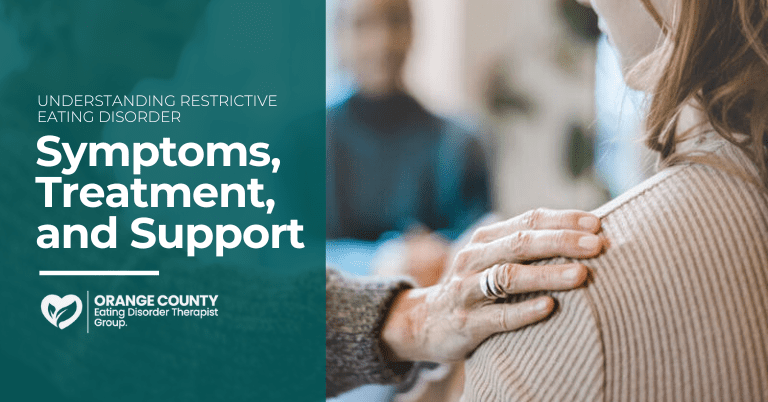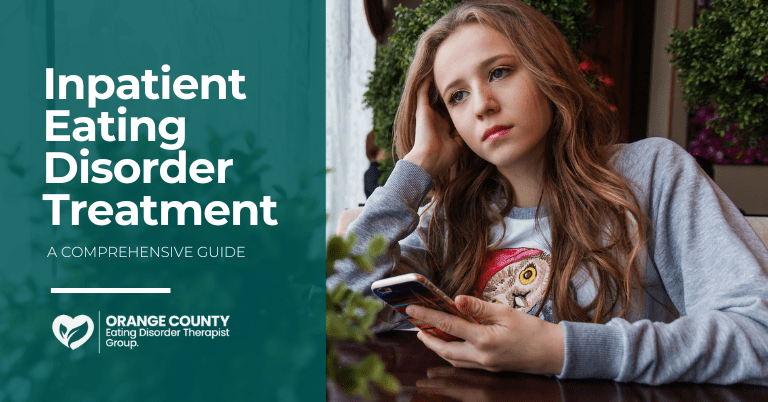Orthorexia Nervosa
Orthorexia nervosa is a lesser-known eating disorder characterized by an excessive preoccupation with eating food that one considers healthy, while strictly avoiding foods deemed unhealthy or impure. Unlike other eating disorders that focus on quantity of food, orthorexia involves an unhealthy obsession with the quality of food.
This condition can lead to severe dietary restrictions and affect an individual’s physical health as well as social and emotional well-being.
This article will highlightinto the orthorexia nervosa symptoms, explore treatment options, and discuss how professionals like eating disorder therapists can help.
What is Orthorexia Nervosa?
Orthorexia nervosa, although not officially recognized in standard diagnostic manuals like the DSM-5, is gaining recognition within the medical and therapeutic communities due to its increasing prevalence. It starts as a genuine desire to eat healthy but escalates into a fixation where food choices become so restrictive that health suffers.
Key Orthorexia Nervosa Symptoms
Recognizing orthorexia can be challenging as it often starts with positive intentions. However, several symptoms are indicative of this disorder:
- Obsessive Focus on “Healthy” Eating: Spending excessive amounts of time thinking about and planning meals that are considered healthy.
- Severe Restriction: Eliminating large groups of foods from the diet, such as sugars, carbs, dairy, meats, or food additives.
- Distress or Guilt from Deviation: Experiencing anxiety, guilt, or intense fear of disease from eating foods perceived as unhealthy.
- Social Isolation: Avoiding social events or eating out to stick to specific dietary rules.
- Physical Manifestations: Nutritional deficiencies leading to weight loss, hormonal imbalances, or bone loss due to dietary restrictions.
Orthorexia Nervosa Treatment
Professional Guidance
- Eating Disorder Specialist: Consultation with a specialist who understands the complexities of eating disorders is crucial. They provide a diagnosis and tailor a treatment plan.
- Eating Disorder Counseling: Therapy sessions can help to address the underlying emotional and psychological issues, such as anxiety or obsessive-compulsive traits.
Nutritional Rehabilitation
- Eating Disorder Dietician: A dietician can help create a balanced diet plan that ensures nutritional needs are met while gradually reintroducing feared foods.
- Educational Support: Learning about the body’s nutritional needs and the dangers of extreme dietary restrictions.
Psychological Interventions
- Cognitive Behavioral Therapy (CBT): This therapy helps to change the harmful thinking and behavior patterns associated with orthorexia.
- Group Therapy: Sessions with others facing similar challenges can reduce feelings of isolation and promote recovery.
Role of Eating Disorder Therapist and Eating Therapist
An eating disorder therapist can be instrumental in treating orthorexia by providing specialized counseling tailored to the unique aspects of this disorder. They work to develop healthy eating habits and cope with anxiety about food. An eating therapist, who may have a broader focus on problematic eating behaviors not strictly classified as eating disorders, can also provide valuable guidance and support.
Conclusion
Orthorexia nervosa is a complex eating disorder that often starts from a healthy place but spirals into an unhealthy obsession with pure eating. Recognizing the symptoms early and seeking professional help from an eating disorder specialist or an eating therapist can prevent the serious consequences of this disorder.
With the right orthorexia nervosa treatment and support for orthorexia nervosa symptoms, individuals can regain a balanced relationship with food and improve their overall quality of life.
FAQs
- How is orthorexia nervosa different from other eating disorders?
Unlike disorders focused on quantity of food, like anorexia or bulimia, orthorexia is obsessed with the quality of the food.
- Can orthorexia nervosa lead to other health issues?
Yes, severe dietary restrictions can lead to nutritional deficiencies, which can cause a range of health issues, including bone density loss, hormonal imbalances, and cardiovascular problems.
- Is orthorexia nervosa officially recognized as a disorder?
As of now, orthorexia is not recognized as a distinct condition in major diagnostic manuals like the DSM-5, but it is increasingly acknowledged by health professionals as a serious eating disorder.
- What should I do if I think a loved one has orthorexia nervosa?
Encourage them to seek help from a professional such as an eating disorder specialist or dietician, who can provide appropriate guidance and treatment.
- Are there support groups for people with orthorexia nervosa?
Yes, support groups and therapy sessions led by professionals can provide additional support and resources for those recovering from orthorexia.

